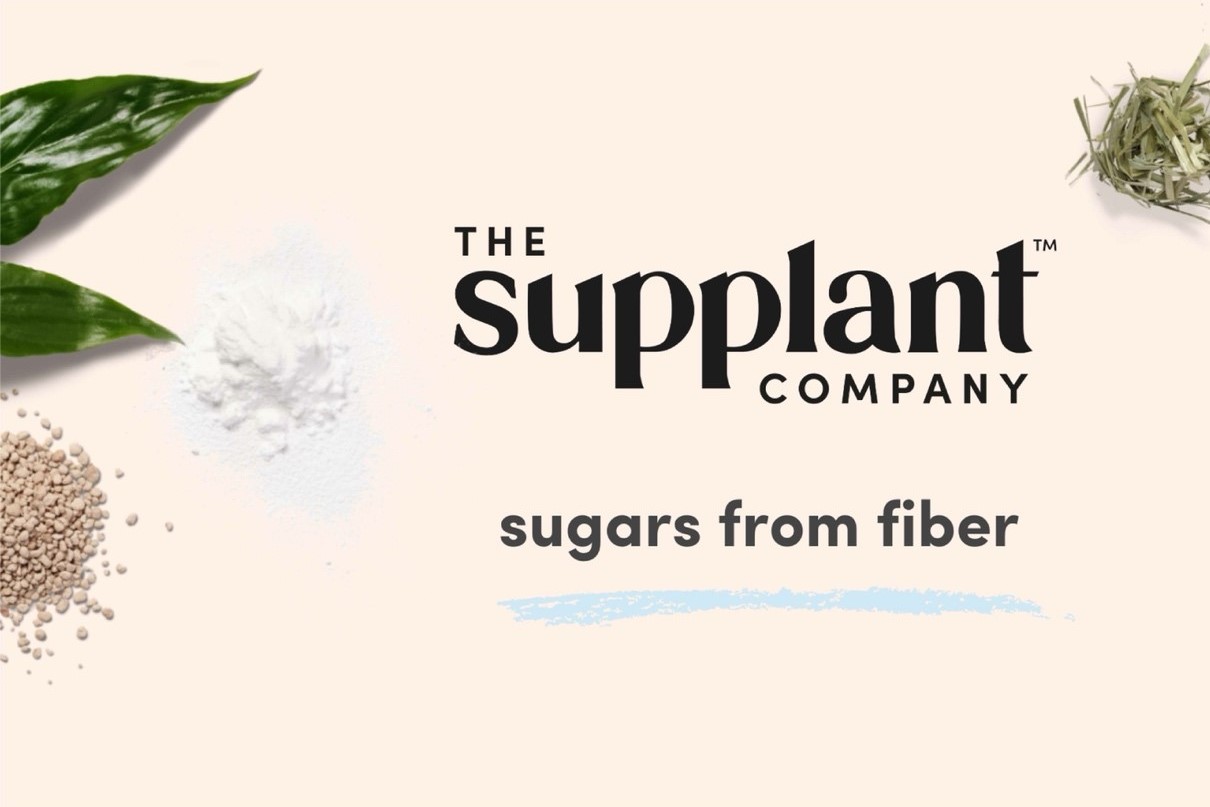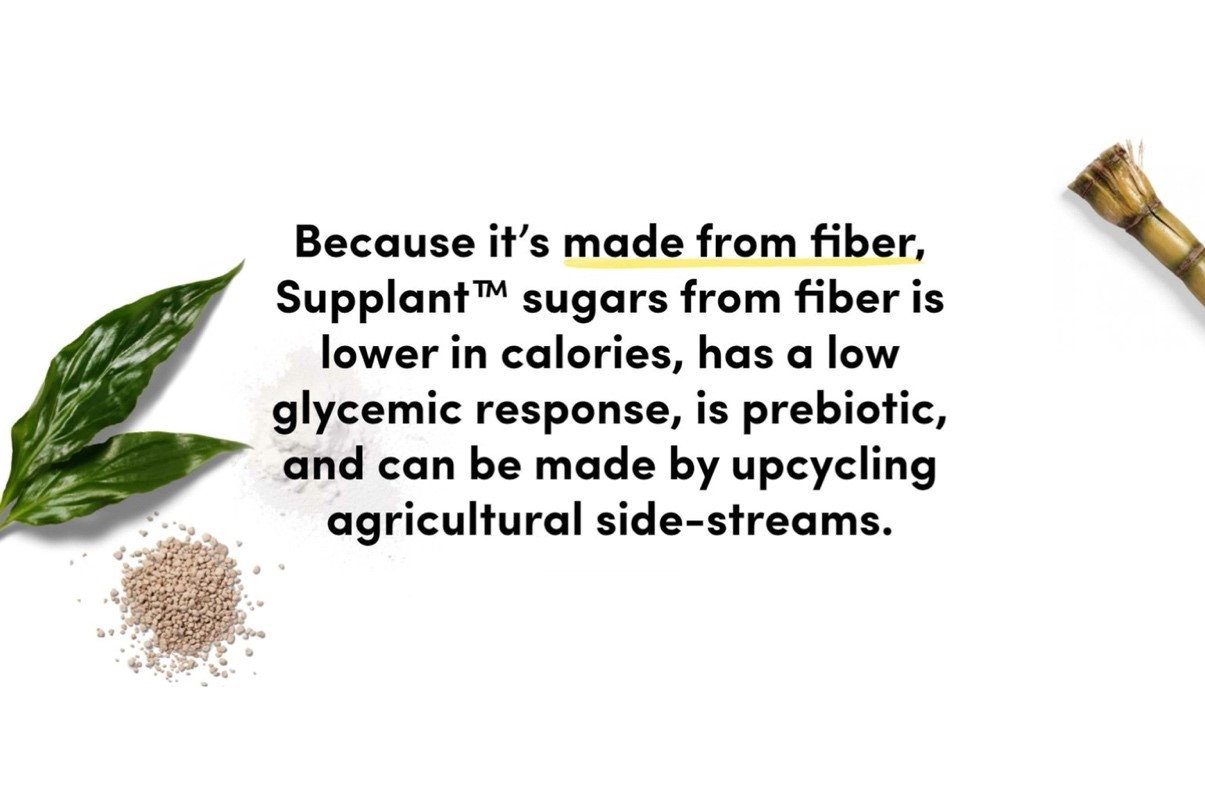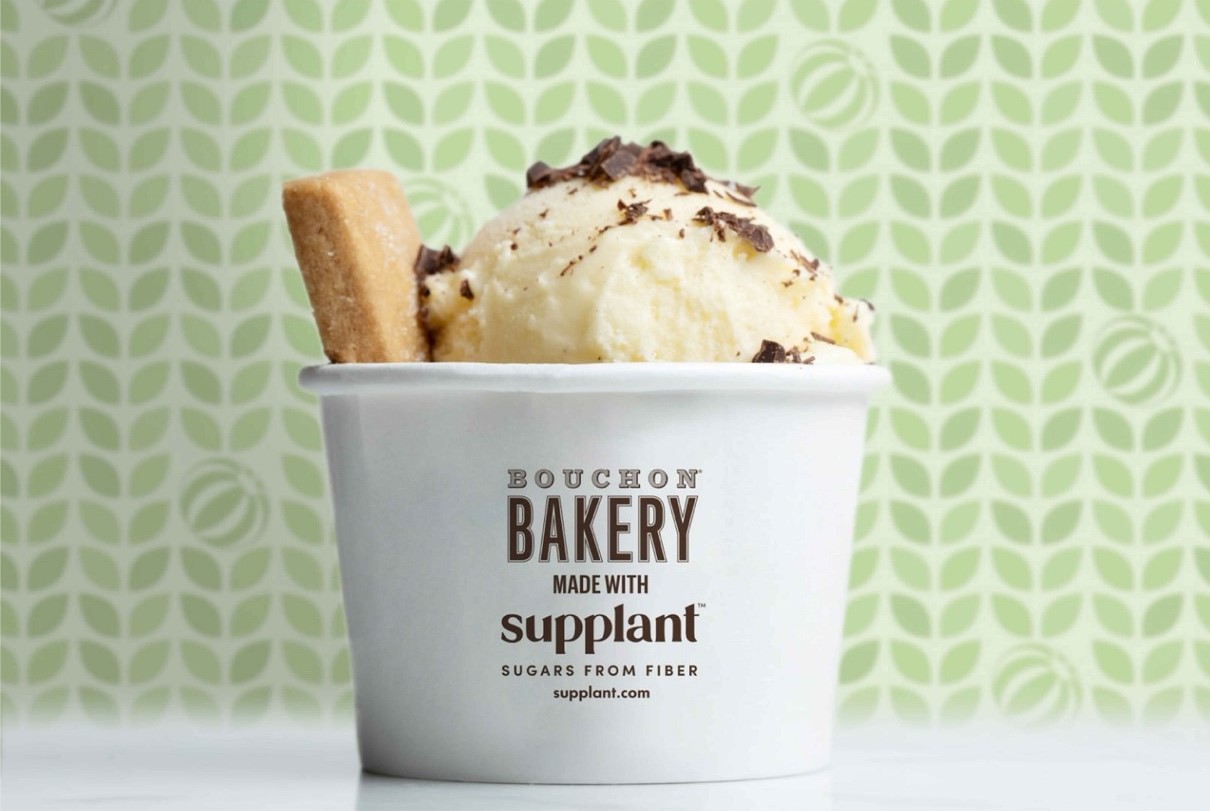Spotlight on The Supplant Company…
Sugars. It’s what gives the foods we love its sweetness. But did you know it also has many other functions, including texture, colour, preservation, volume and fermentation? The basic building blocks of carbohydrates, sugars are found in nature, in milk, tree saps, fruits and vegetables. It all starts with sugar cane, first discovered 10,000 years ago in Papa New Guinea, making it one of the world’s oldest documented commodities. Fast forward to today, 110 countries produce sugar from either cane or beet, with sugarcane accounting for 80% of global sugar production.
It’s no secret that too much sugar is bad for us humans, in particular added sugar. It can lead to diabetes, obesity, and heart disease. A US study found that people who got 17-21% of their calories from added sugar had a 38% higher chance of dying from cardiovascular disease compared with those who consumed 8% of their calories as added sugar. Sugar addiction is reaching epidemic levels. In the 1800s, the average American consumed 4 pounds of sugar a year – this figure has drastically increased to 105 pounds a year.
Enter The Supplant Company – they’ve developed a brand-new blend of sugars made from plant fibre, that not only tastes like the sugar we know and love, but is lower in calories, prebiotic, low-glycemic and gluten-free.
Amy Tsang (AT), from the incubation team of The Mills Fabrica, speaks to Tom Simmons (TS), Founder & CEO of the company to discover more.

The Supplant Company is upcycling crop waste to produce sugars
AT: Can you describe The Supplant Company in one sentence?
TS: The Supplant Company is committed to developing solutions for the two big issues that are affecting our food industry right now; one is the damage to consumers and the other is the damage to the environment, so we really think that real solutions for the food system today are going to have to be things than can address both sides of that equation. Of course, the way we do that is by addressing the sugar problem, the epidemic of diseases caused by excess sugar consumption as well as the very deleterious effect the broad sugar industry has on the world.
AT: What is the problem that The Supplant Company is aiming to fix?
TS: There’s two sides of the coin. The most obvious thing that consumers would be aware of, in terms of sugar, is non-communicable diseases like obesity, diabetes, heart disease, tooth decay etc. These are some of the epidemic proportions, sugar is arguably the most causative feature. Excessive sugar is consumed across all sorts of food products, it’s everywhere in the food system, the most pervasive ingredient. It’s a big cause of these human health issues. On the other side of the coin, sugar cane plantations are the number one source of biodiversity loss globally. It tends to be done in the tropics where you have to tear down tropical rainforests, so it accounts for a not insubstantial proportion of carbon emissions globally. So, both are sort of macro-impact on climate as well as very damaging to the environments that these plants are grown in.

Supplant sugars are healthier and better for the planet
AT: Can you break down your approach for us?
TS: What we do is we make sugar from dietary fibre. In practice the fibres that we use are things that don’t make it into the food system and that’s core to the sustainability side of what we do. We use agricultural side-streams, which are the majority of crops and plants that are grown around the world; corn cobs, corn stalks, rice straw, wheat straw, sugar cane stalks. These fibrous structural materials are in excess, the amount of them exceed the actual starch, carbs and flour and sugar that are produced by these plants, and inside these materials they’re almost entirely made of fibre. Fibre is by and large chains of sugars and the chains of sugars that are bound together in complex ways which means they’re not digested -not absorbed- during human digestion. We take those long chains, and we have an enzyme-based process that breaks them down into short chains and those short chains then look molecularly -to a biochemist they look a bit more like sucrose- like cane sugar. Because they sort of look like cane sugar, they start behaving like cane sugar in food products when they’re broken down. And as they are fibre-derived they still retain fibre-based qualities when it comes to nutrition, so they behave more like fibre in your body. They’re low-glycemic like fibre is, pre-biotic like fibre is, low calorie like fibre is, despite the fact that they behave in cookies, cakes and candy like cane sugar does.
AT: So, you’re essentially upcycling crop waste and converting this into new sugars. What is the impact of this on our agricultural ecosystem and how does it compare to the traditional sugar industry today?
TS: A full life cycle assessment is a core part of the work we have to do in the next few years. There’s a certain amount of fertilizer and chemicals and a lot of fuel that goes into growing crops, and food waste is a big environmental issue. Most people think of food waste as ‘freeze your bread at home’ and ‘eat your vegetables before they go off’ and of course it does happen in your house but a huge chunk of it happens before these crops even leave the farm. So, it’s a bit of a conceptual frame switch to realise that the bulk of what comes off these crops is wasted already so one angle that’s very clear, is just increasing the efficiency of the current agricultural ecosystem.
We have a growing population with limited real estate to grow crops from so one way is trying to turn even more land into agricultural land. Another way is to increase the efficiency of current crop production which requires no more fertilizers, no more fuel, no more pesticides, just better use of what’s already created. Making current crops more efficient, will inherently reduce the impact per kilo of material that comes off the farm. But if you want more cane sugar in this world, you have to grow more sugar cane plantations and those are damaging, especially to local habitats where they are formed. The WWF calls these probably the most negatively impactful thing on biodiversity globally, sugar cane plantations – largely to do with where they’re based in the tropics. In contrast, if you want more Supplant sugars from fibre, all you’ve got to do is use what’s already there, it’s naturally produced all year round by our agricultural system with no negative impact on the environment.
AT: Can you share with us the inspiration behind The Supplant Company and what was your eureka moment?
TS: My background was outside the food industry. Prior to this I was an academic, a carbohydrate scientist, a plant scientist. A lot of the work was pure science, understanding the world and particularly how plants grow. The application space we were really interested in was far more focused on sustainability, so renewable materials, renewable chemicals, renewable fuels – that was sort of the world I came from, and it was obviously related to food, but fundamentally I wasn’t a food scientist. I knew what I wanted to do would be meaningful and it would matter if we didn’t do it. So, I started looking for opportunities and learned about sugar reduction in food being a particularly difficult problem to solve. Although the sugar in drinks problem has been largely solved (there’s lots of sugar-free drinks on the market right now), to this day sugar-free food products or low-sugar food products really haven’t permeated mainstream food categories and there’s a technical reason for that. So, it was really when I understood that problem of the inability to solve sugar reduction in food and that a lot of the science that I’d spent the last sort of decade or so working at in this tangentially related field outside of the food space, I realised that science could be applied here. That was the eureka moment.
AT: Over the Summer you partnered with Michelin star chef, Thomas Keller to launch ice cream and shortbread using Supplant sugars. How did this partnership come about?
TS: So, it’s funny, it came about because we sort of had the inkling that bringing onboard a chef would be the right thing to do, you know brand-building, proving that the product could perform in the most selective settings. The way it started was that one of the members of the team wrote a handwritten letter to Per Se in New York and managed to get the attention of one of Thomas’s chefs. Eventually we were invited to meet in front of Thomas, we flew over to California and visited him in Napa.

The Supplant Company has recently partnered with Michelin star chef Thomas Keller
AT: What’s next for The Supplant Company? In addition to sugars for food, what are the other applications for your ingredient innovation?
TS: That’s the plan absolutely, to do other things but I don’t think we can talk about it just yet. Inside food, we will be rolling out in retail settings over the next few months and so consumers in the US will be able to find Supplant inside US-based consumer products and partly we’ll be pushing those ourselves and partly working with partners who are already operating, as in selling the ingredient into existing products.
References
[1] https://www.sugar.org/sugar/history/
[2] http://www.isosugar.org/sugarsector/sugar
[3] https://jamanetwork.com/journals/jamainternalmedicine/fullarticle/1819573
[4] https://www.healthline.com/health/sugar/americas-deadly-sugar-addiction#Determining-a-Daily-Value
Photos: https://supplant.com